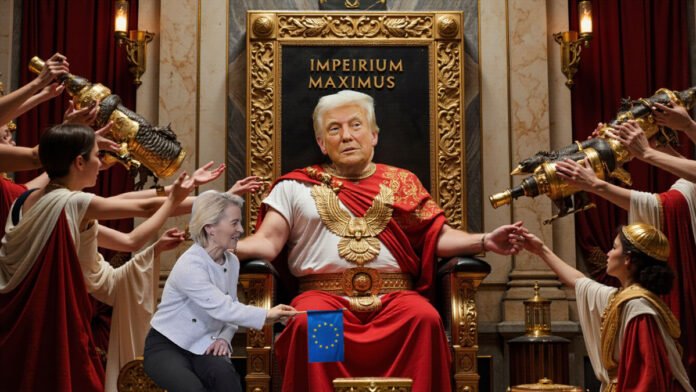Trump’s Turnberry Shakedown: How the EU Learned the Price of Economic Vassalage
Donald Trump has forced through a transatlantic trade agreement with the European Union during his visit to Scotland, striking the deal not in Brussels or Washington, but on the golf course at his luxury Turnberry resort.
In scenes that would make any Roman emperor giggle, the American president received European Commission President Ursula von der Leyen like a vassal come to pay tribute. And pay tribute she did, to the tune of hundreds of billions.
But here’s the thing: the EU is finally getting a taste of its own medicine.
The Shakedown at Turnberry
The symbolism couldn’t be clearer. While European workers face the consequences of this economic extortion, Trump conducted negotiations between rounds of golf at his private Scottish resort. This wasn’t diplomacy, it was a protection racket with diplomatic immunity.
The deal? A 15% tariff on European goods entering the US market, triple the previous rate of 4.8%. Von der Leyen arrived offering “zero-for-zero” tariffs, the kind of mutually beneficial arrangement that actual allies might negotiate. She left having agreed to what amounts to a $700 billion tribute payment over Trump’s term.
“It’s going to bring us closer together,” Trump smirked after shaking hands on the deal. Closer together, like a loan shark and his debtor.
Sound familiar? This is exactly how the EU operated during Brexit negotiations, threatening economic devastation unless Britain accepted their terms, dictating conditions from positions of strength, treating sovereignty as something to be bartered away for market access.
The EU’s Imperial Chickens Come Home to Roost
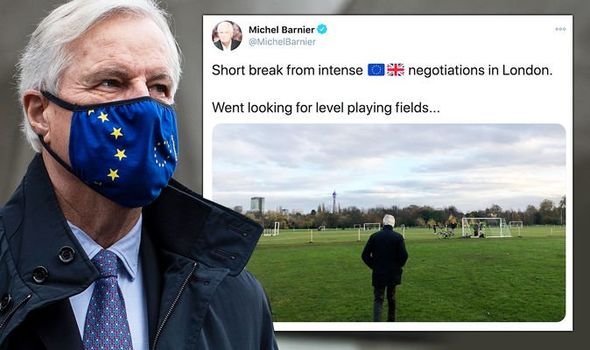
Let’s be clear: what Trump is doing to Europe is despicable economic imperialism. But watching the EU squirm under American pressure is like watching a school bully finally meet someone bigger. These are the same people who spent years trying to crush Britain for daring to leave their club.
Remember how the EU treated Brexit Britain? The threats, the economic warfare, the deliberate attempts to make leaving as painful as possible. “You can’t cherry-pick,” they sneered. “There will be consequences for leaving our market.” Now they’re discovering what real consequences look like when a genuine economic superpower applies pressure.
Von der Leyen’s language tells the story. She called it “tough negotiations” and a “huge deal,” desperately spinning capitulation as diplomacy. This is the same woman who lectured Britain about “respecting treaties” while her bloc now caves to American demands at the first sign of serious pressure.
The European response exposed their complete hypocrisy. Some member states, France and Spain, wanted to fight back with retaliatory measures worth €93 billion. Others, led by Germany and Italy, preferred the quick surrender. In the end, European unity crumbled the moment Trump applied real pressure, exactly what they said would happen to Britain outside the EU.
Globalisation: The Banker’s Empire
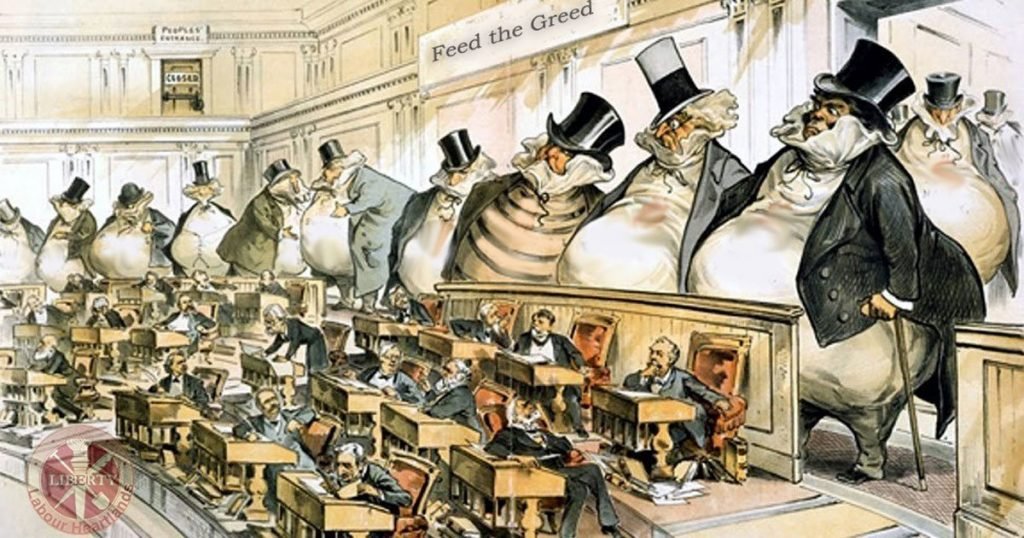
What we’re witnessing isn’t just Trump’s megalomania, it’s the inevitable endpoint of the globalised system that both America and the EU have spent decades constructing. This is globalisation in its purest form: a handful of economic powers dividing up markets while ordinary people pay the price.
For decades, we’ve been told that globalisation means prosperity and cooperation. In reality, it’s imperialism by bankers, exploitation by hedge funds, and tribute to whoever holds the biggest economic stick. Today it’s America extracting tribute from Europe. Tomorrow it could be China demanding the same from both.
The pharmaceutical sector tells the story perfectly. Trump initially declared EU-made drugs excluded from the deal entirely: “We have to have them built and made in the United States.” By the meeting’s end, pharmaceuticals were included at the 15% rate, with Trump reserving the right to impose further restrictions “globally.” This is what dependency looks like, when you don’t make what you need, someone else controls your access to it.
Europe’s Energy Colonialism

Perhaps most telling is Europe’s commitment to spend over $250 billion annually on American liquefied natural gas, oil, and nuclear fuels. This isn’t energy security, it’s energy colonialism. Europe is trading dependence on Russian energy for dependence on American energy, swapping one master for another.
The $700 billion energy commitment over Trump’s term represents the largest tribute payment in modern history. European consumers will pay inflated prices for American energy while US corporations pocket the profits. It’s wealth extraction disguised as alliance management.
But here’s the brutal irony: this is exactly what the EU did to Britain’s energy sector through their climate regulations and green tape. They made it impossible to develop domestic energy production, forcing dependency on European suppliers and Russian gas. Now they’re discovering what energy dependency really costs.
The Lesson for Britain: Self-Reliance or Servitude
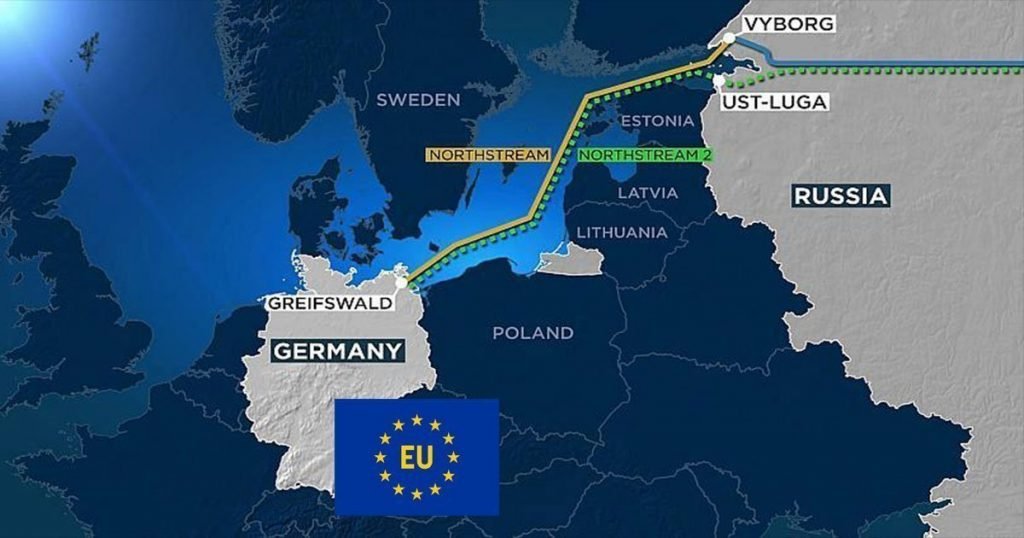
Don’t think Britain is exempt from Trump’s tribute system. But we have something the EU doesn’t: the opportunity to learn from their humiliation.
Brexit gave us one thing the EU lacks, genuine sovereignty. We can choose a different path. Instead of accepting tribute status to either America or Europe, we can build what we use and grow what we eat right here in Britain.
Want energy security? Develop North Sea oil and gas, build nuclear power, invest in domestic renewables. Want food security? Support British farmers, rebuild our fishing industry, reduce dependency on imported basics. Want manufacturing independence? Bring production home instead of shipping jobs abroad.
The globalised economy isn’t about free trade, it’s about free exploitation. It’s a system designed to benefit international capital while keeping ordinary workers dependent and powerless. Whether that capital is American, European, or Chinese makes little difference to British families struggling with the consequences.
Breaking the Tribute Cycle
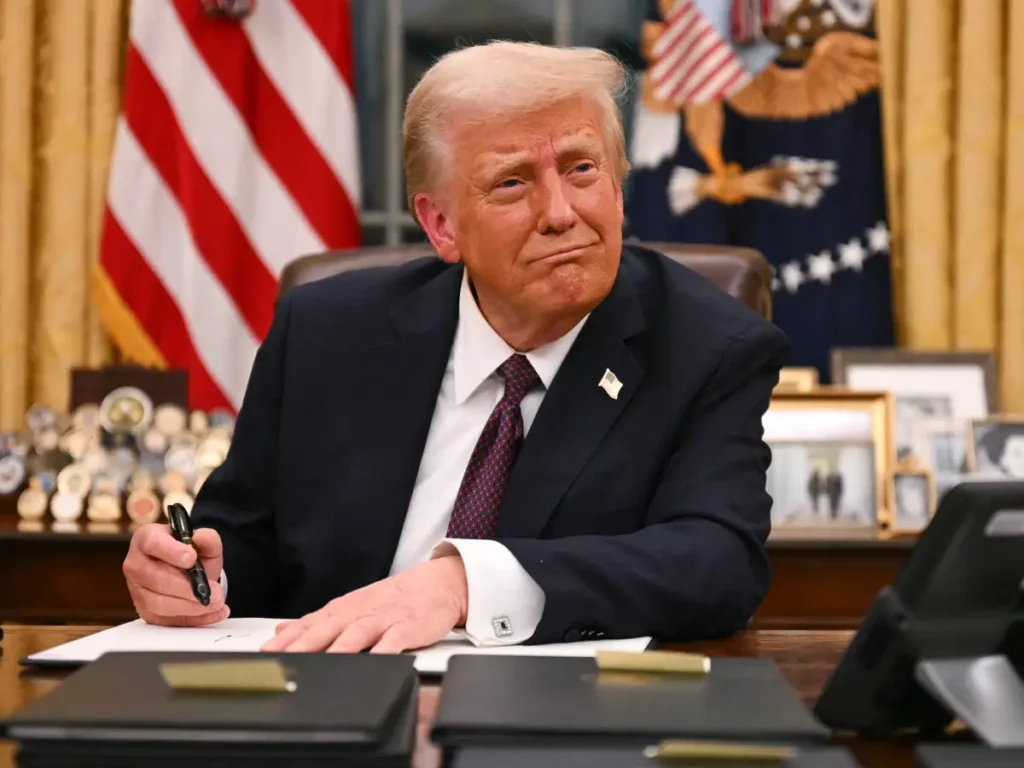
Trump’s golf course empire represents everything wrong with the current global order: wealth concentration, imperial arrogance, and the subordination of democracy to corporate power. His tariff tribute system turns international relations into a protection racket where might makes right.
But the EU’s surrender also reveals something crucial: even powerful economic blocs become vassals when they depend on others for what they need. Europe imports American energy, relies on global supply chains, and discovered that all its economic integration means nothing when a real power decides to squeeze.
The same hedge funds and investment banks that pushed globalization on ordinary people are now the ones profiting from its breakdown. They made fortunes from offshoring production, shipping jobs abroad, and creating dependency. Now they’re making new fortunes from the chaos they created.
The British Alternative
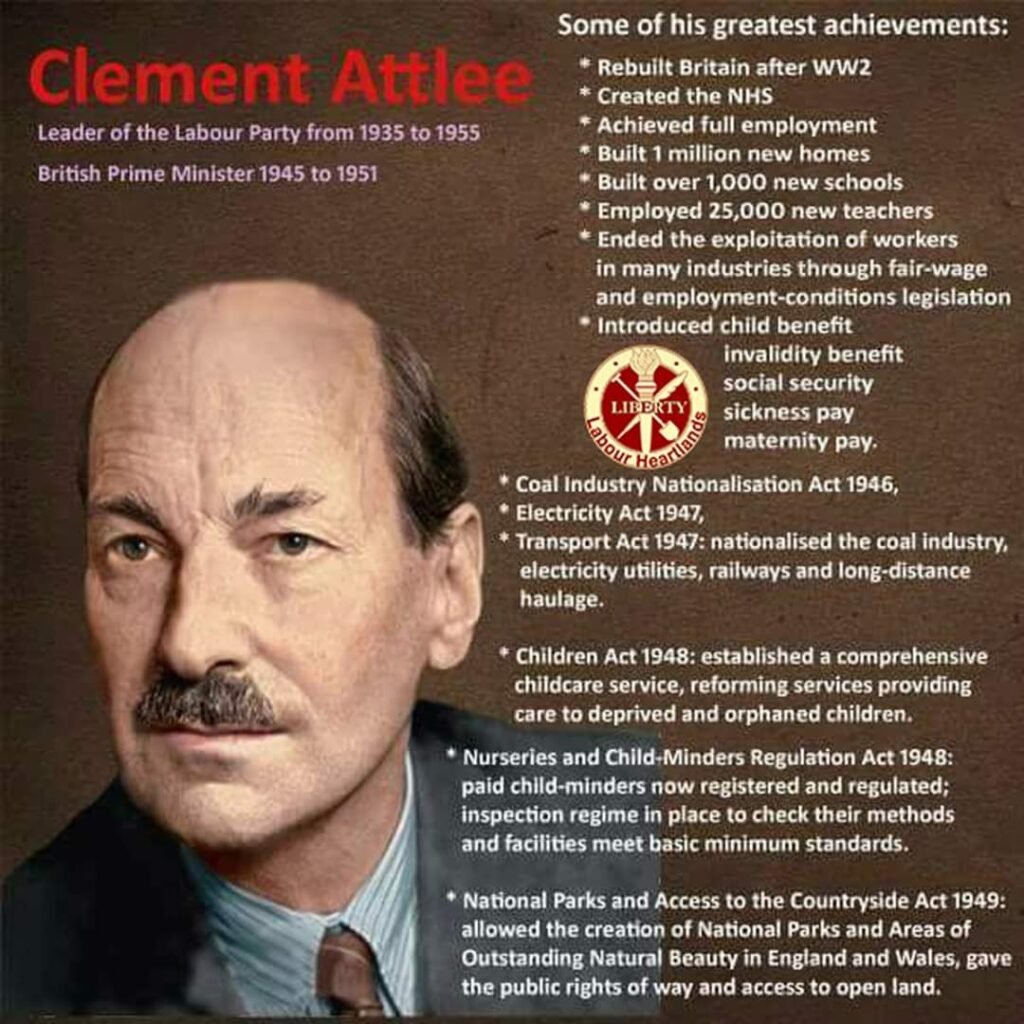
There’s another way. Britain can choose economic nationalism over global vassalage. We can build our own steel, grow our own food, generate our own energy, and manufacture our own goods. It means rejecting the banker’s model of comparative advantage that leaves every nation dependent on every other.
It means understanding that true sovereignty isn’t about flags and anthems, it’s about producing what you need to survive and thrive. It’s about economic independence that makes political independence possible.
The EU is learning this lesson the hard way, paying tribute to Trump while their own people face higher prices and reduced prosperity. But we don’t have to follow their path.
Beyond Left and Right

This isn’t about left-wing protectionism or right-wing nationalism, it’s about basic economic common sense. A country that can’t feed itself is always vulnerable to pressure. A nation that can’t make what it needs will always pay tribute to those who can.
Trump’s tariff tribute system is despicable, but it’s also inevitable in a globalized world where economic power translates directly into political control. The EU spent years building this system, using it against smaller nations, and now they’re experiencing what it feels like to be on the receiving end.
Britain has a choice: we can continue playing the globalization game, accepting whatever tribute system emerges from great power competition, or we can build an economy that serves our people rather than international capital.
The Path Forward
Trump’s empire will fall eventually, just like all empires do. But the system that created it, globalised finance capitalism that turns nations into economic vassals, will survive unless we choose something different.
The lesson from Turnberry isn’t that we need to choose between American or European masters. It’s that we need to stop accepting masters altogether. Build what we use. Grow what we eat. Generate the energy we need. Control our own economic destiny.
Because in a world of tribute and vassalage, the only real independence comes from the ability to say no, and have the domestic capacity to make it stick.
Support Independent Journalism Today
Our unwavering dedication is to provide you with unbiased news, diverse perspectives, and insightful opinions. We're on a mission to ensure that those in positions of power are held accountable for their actions, but we can't do it alone. Labour Heartlands is primarily funded by me, Paul Knaggs, and by the generous contributions of readers like you. Your donations keep us going and help us uphold the principles of independent journalism. Join us in our quest for truth, transparency, and accountability – donate today and be a part of our mission!
Like everyone else, we're facing challenges, and we need your help to stay online and continue providing crucial journalism. Every contribution, no matter how small, goes a long way in helping us thrive. By becoming one of our donors, you become a vital part of our mission to uncover the truth and uphold the values of democracy.
While we maintain our independence from political affiliations, we stand united against corruption, injustice, and the erosion of free speech, truth, and democracy. We believe in the power of accurate information in a democracy, and we consider facts non-negotiable.
Your support, no matter the amount, can make a significant impact. Together, we can make a difference and continue our journey toward a more informed and just society.
Thank you for supporting Labour Heartlands
